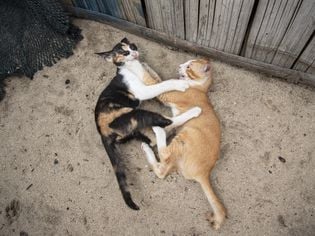
How to Stop Cats From Using a Sandbox as a Litter Box
If cats are using your child's outdoor sandbox as a litter box, then you have a few optio...
Spring flowers are always a welcome sight after a long, dark winter. Not all spring flowers are safe for your cat, though. Daffodils, while a popular flower that blooms in spring, are toxic to cats. They can cause vomiting, diarrhea, lack of appetite, and more. Here's exactly how to keep your cat safe from daffodils this spring.
Daffodils are members of the Amaryllidaceae family of plants. All parts of the plant are toxic. Daffodils contain alkaloids, which are nitrogenous organic compounds in plants that have profound physiological effects on people and pets. While all parts of the plant are toxic, the bulb is the most toxic as it has the highest concentrations of these alkaloids.
Additionally, daffodils contain calcium oxalate crystals. These crystals can cause irritation and it is believed that the calcium oxalate crystals in the stem sap are what causes a contact dermatitis that is seen in people. Prolonged exposure may also cause irritation to your cat.
Most of the clinical symptoms of daffodil toxicity arise from the effects of the alkaloids in the plant. These alkaloids can cause symptoms including:
These symptoms can occur as soon as 15 minutes after ingestion, or they may take up to 24 hours to manifest. Vomiting, diarrhea, and a lack of appetite are easy enough to spot. Abdominal pain might manifest as being more lethargic at home and/or more acting more guarded. Guarding behavior can manifest as acting more stand-offish with other pets in the home or even with you.
A decrease in body temperature may lead to heat-seeking behaviors, such as hiding under blankets or laying near/on heat registers. A decrease in heart rate may not manifest as a noticeable symptom at home, but it may make your cat more tired. A decrease in blood pressure will make your cat more lethargic. An increase in blood glucose can cause your cat to be weak and may cause vomiting or lethargy.
If your cat eats a daffodil, in any quantity and any part, call a poison control hotline such as the ASPCA Animal Poison Control at (888) 426-4435 or the Pet Poison Helpline at (855) 764-7661. They will let you know whether or not you should induce vomiting (and how to do it). They will also give you a case number. This is important for your veterinarian as they can call the hotline with that case number and get diagnostic and treatment recommendations tailored to your own cat’s toxicity case. As your cat is being treated, if any complications from treatment and/or the toxicity itself arise, the veterinarian can call the hotline to get updated recommendations from the toxicologists.
Most pet poison hotlines do charge you, the pet owner, for consultations, but don’t let this be a deterrent to calling. The veterinarians and staff of these hotlines truly are the experts when it comes to toxin ingestion. They will be able to better guide the treatment of your cat for any toxin they may get into, not just daffodils.
Unfortunately, there are so many plants that pose a toxicity risk to cats. It’s something that every cat owner should be aware of before bringing a plant into their home. There are flowering plants that are safe for cats, though, and can still bring color to your home. A quick Google search before bringing a new plant into the home is a must for any cat owner. The following flowering plants are considered to be safe for cats:

If cats are using your child's outdoor sandbox as a litter box, then you have a few optio...
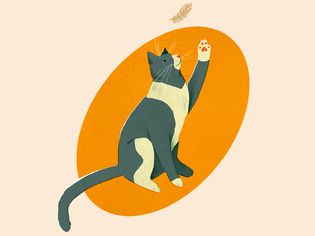
Cats are amazing, intelligent creatures. Their lifestyle reflects the predatory skills an...
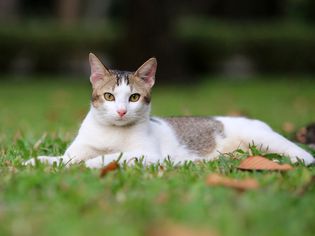
Cat owners know that the primary staple in their pet's diet should be meat, as they d...

When companies are issuing recalls on cat and dog food, pet owners are rightly concerned ...

There are more questions about solving common cat litter box problems than any other cat ...

Friendly, single adult cats can have trouble adjusting to living with a new kitten. Often...
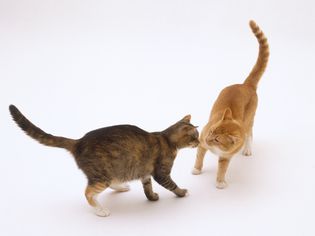
Many cat owners wonder if their neutered or spayed cat will still have the urge to mate o...
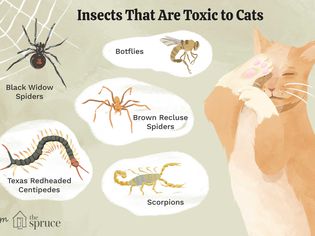
It is not uncommon for cats to hunt insects, and even sometimes eat them. Many common ins...
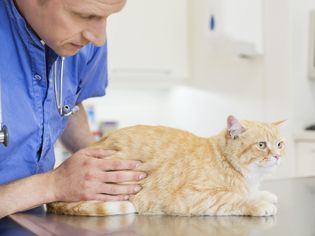
The only way to know for sure whether your cat has a fever is to take its temperature. Th...
Comments on "Are Daffodils Poisonous to Cats?" :